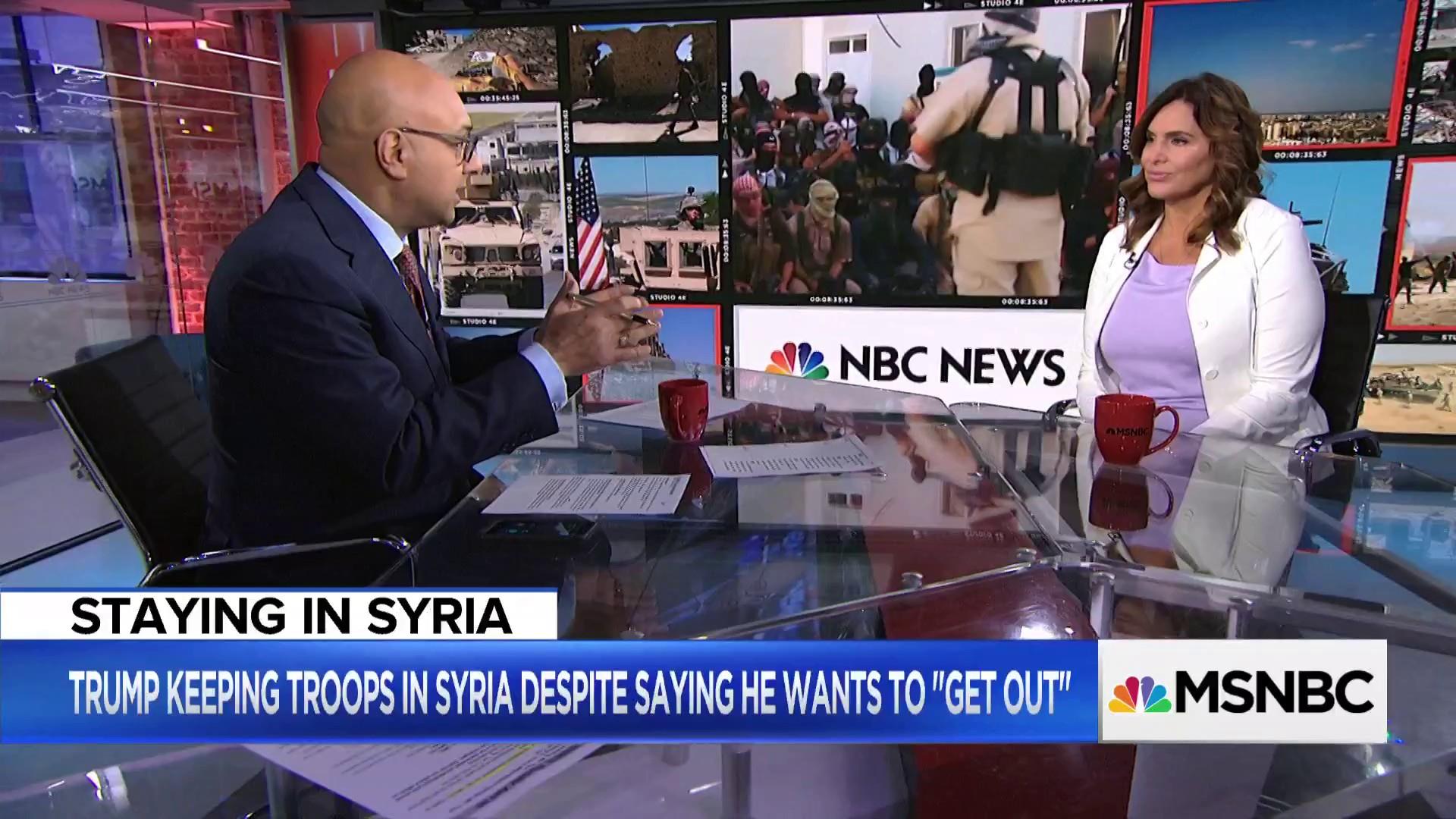
Janine di Giovanni:
"I think that what people forget in this war on ISIS, and president Trump's policies on it, is there is a war going on in Syria, that involves Syrian people; it involves people that are being starved, besieged, burned out of their homes, raped, tortured, in a horrific way, for eight years. That's a terribly long time for a conflict to go on, when you think about it. The five million refugees that are outside the country, kids who have been born, kids under the age of eight, who know nothing but living in a refugee camp outside of Syria. People who are still inside, their day-to-day existence is horrific. So I get very frustrated when we focus so intently on ISIS, when there is still a war between the opposition and Bashar al-Assad.
I think we have to remember there are still people living a day-to-day life, or trying to eke out a day-to-day existence in Syria. I remember in 2012, which was the beginning of the war, when Homs was being obliterated by Assad's troops, sitting in Damascus, which was in Assad controlled territory, and seeing people trying to live their lives, going to parties, going to the opera, going to museums. So I think that, while ISIS is important, the other issue is, is ISIS eradicated? I'm not so sure, because I don't think you can kill an ideology. You can bomb Raqqa into a parking lot, and you will still have people who will maintain what ISIS stands for, the creed of ISIS.
There will be a vacuum of authority. When the American troops do pull out, we are going to leave an open space for Russia and Iran, who have vested interests there, both of whom support Bashar al-Assad, to take root there. It will be more space for jihadist groups to develop. Also, I think it is sending a signal, that the US is not going to be involved in the Middle East, and we're leaving it to traditional allies, like Saudi, like Israel, to clean up this mess.
Had Assad not fired on his own people, and later chemically gassed his own people, this wouldn't have happened. Or if we had sent a very early warning sign to him, and said, "You will not get away with this, you will not get away with this level [of brutality],"...
Instead, we have sent a message that you can get away with stuff. That you can act with impunity, that you can torture, you can imprison, you can kill 500,000 people. Eight years of war. It's an extraordinary amount. I've covered war for more than 30 years now, This is one of the worst.
For régime change, Putin does hold the power there. If he said to Assad, he has to go, he would go. For now he is too intent, and the Iranians are too intent, on building up their little fiefdoms inside Syria. To me, what success would look like is peace, and for the refugees to be able to go home. In all the years I've worked with refugees, I have never known one who said I don't want to go home. You cannot go home until it's safe. Syria is still a place that is as far from safe as you can get. Eastern Ghouta fell recently. Those people have been corralled to Idlib. Idlib is now a festering place, where basically everyone has been dumped, bussed, and deported.
We have to think of the restoration. Yesterday in Turkey, the Turks, the Russians, and the Iranians met, to discuss the future of Syria. Where are the Syrians? What is the country going to look like? Is it going to be a a mutation of an even larger proxy war? There's a lot of issues to look at, rather than just yanking out the troops."


0 Response to "What Americans forget about the War on ISIS"
Post a Comment